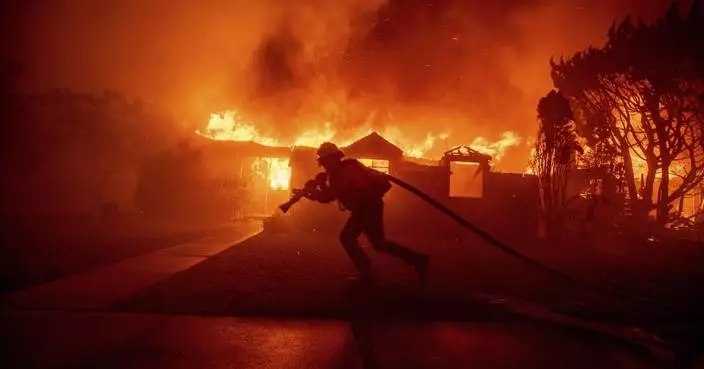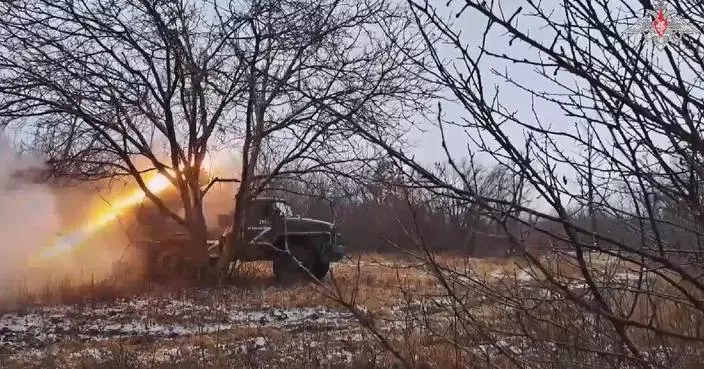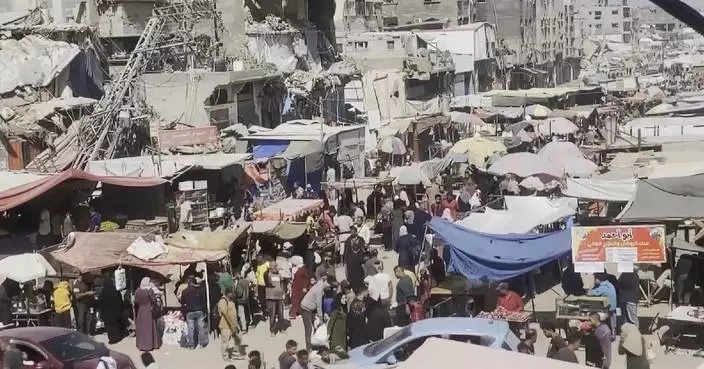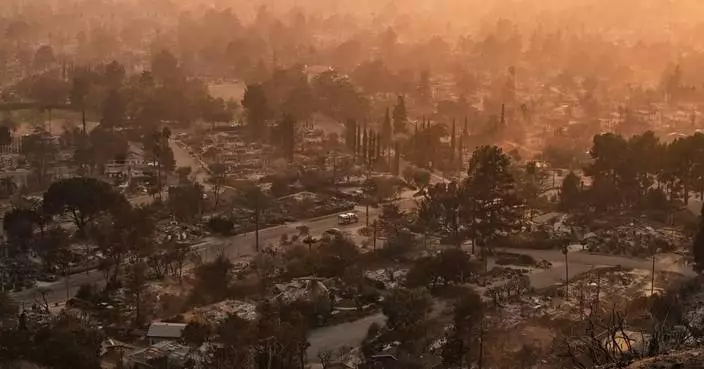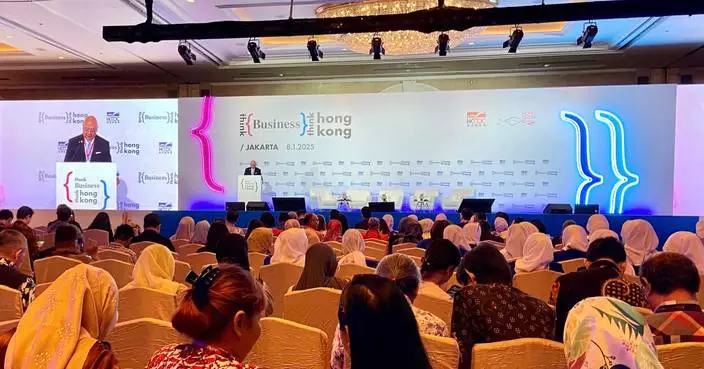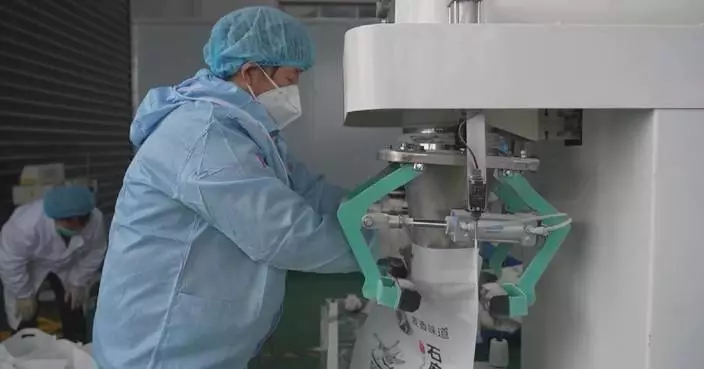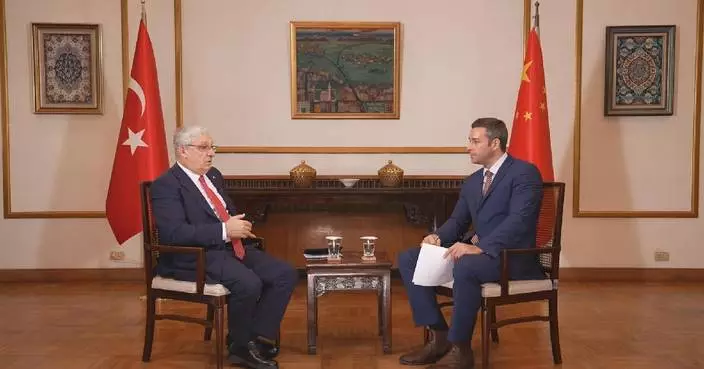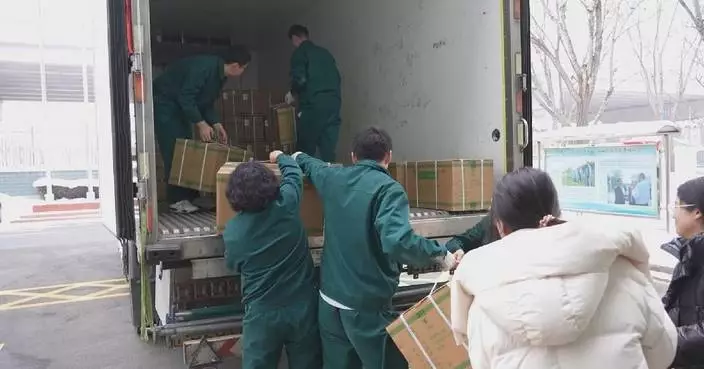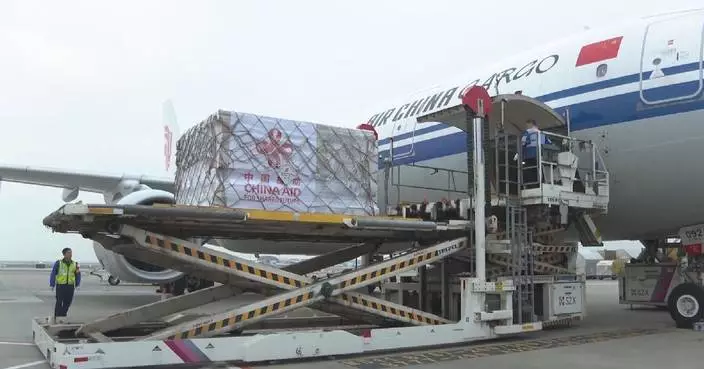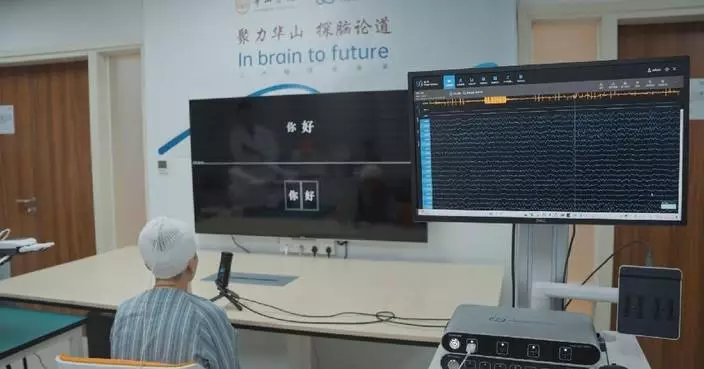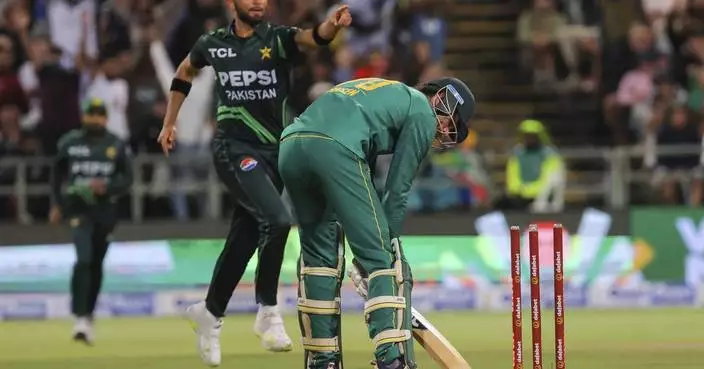Feature · News
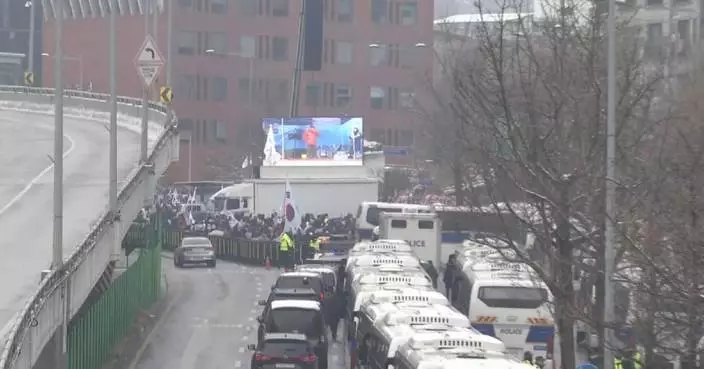
Supporters, protesters gather at impeached South Korean president's residence
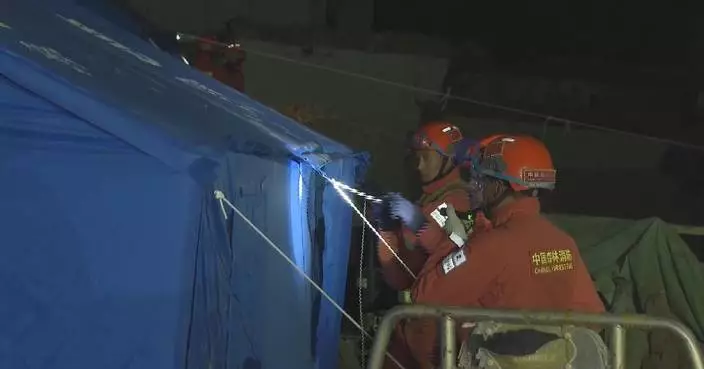
All-out rescue, relief efforts underway in quake-hit areas of Xizang
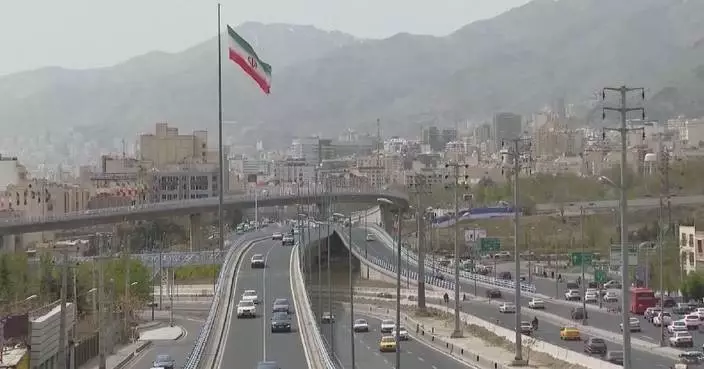
Western countries turn blind eye to Israel's actions in Gaza: Iranian FM
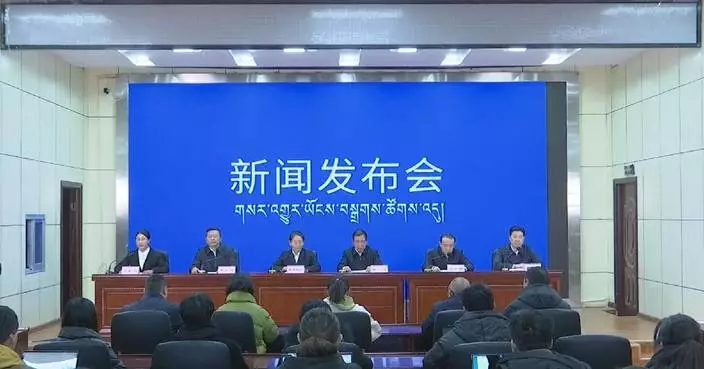
Resettlement, treatment efforts proceed smoothly in quake-hit Xizang
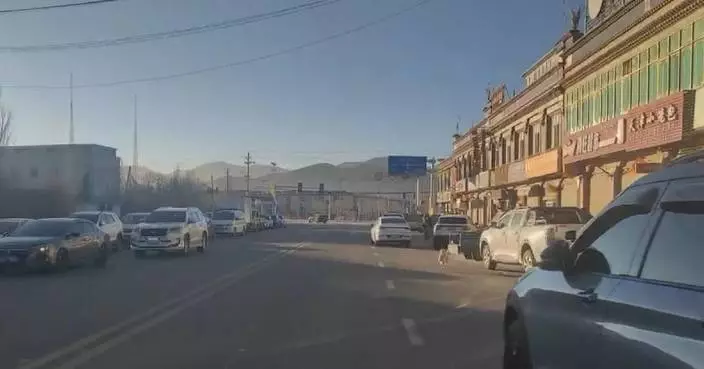
53 dead, 62 injured in Xizang 6.8-magnitude quake

New York imposes first ever congestion pricing plan in U.S.

Mainland official stresses promoting cross-Strait ties in meeting Taitung County head

Chinese AI products take spotlight at CES 2025 in Las Vegas
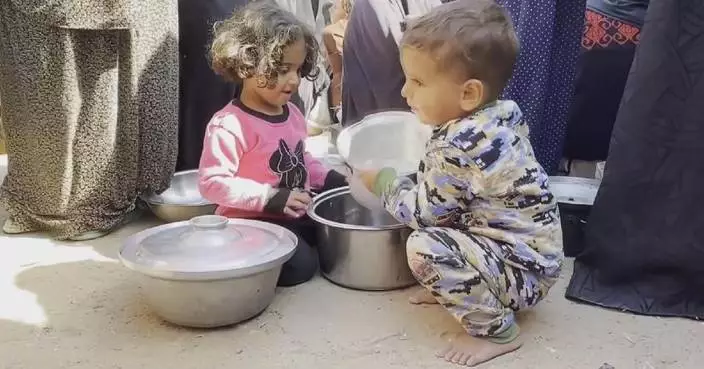
Children paying highest price of war in Gaza: UNICEF spokesman
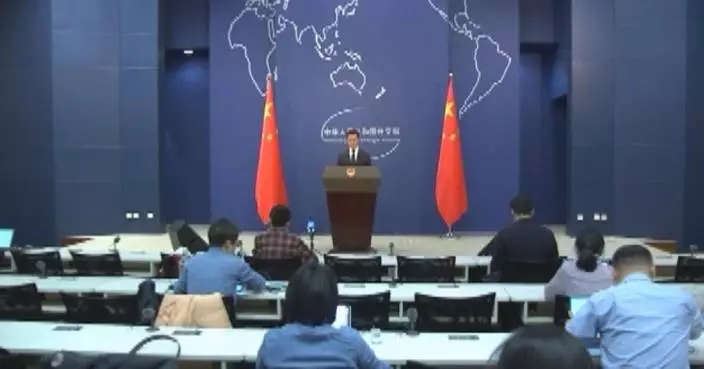
Earthquake relief efforts carried out in timely, orderly manner in Xizang: spokesman
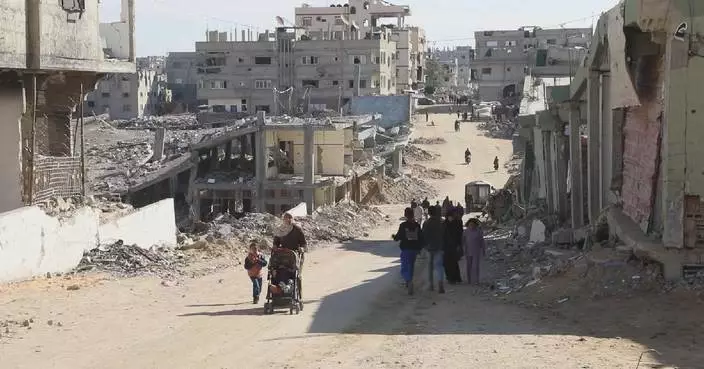
Palestinian death toll from Israeli attacks in Gaza rises to 45,805
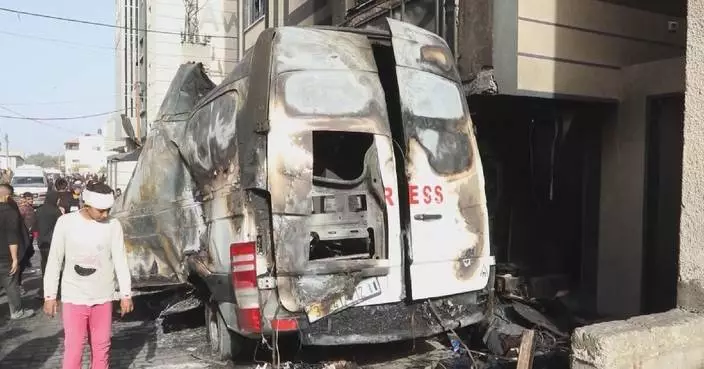
Palestinian death toll from Israeli attacks in Gaza rises to 45,658
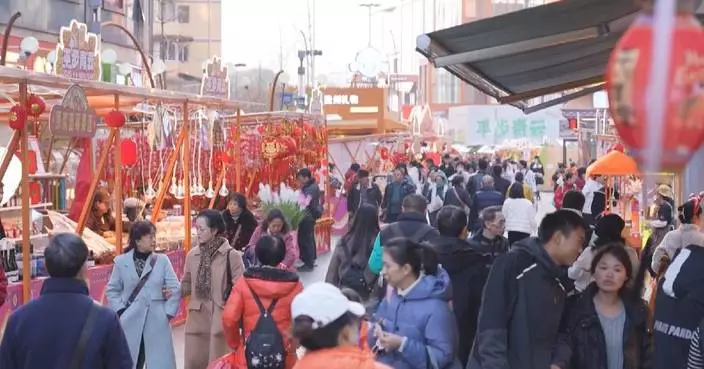
Diversified scenarios, business models fuel consumption boom across China in new year

407 people rescued, temporary buildings set up in quake-hit Xizang
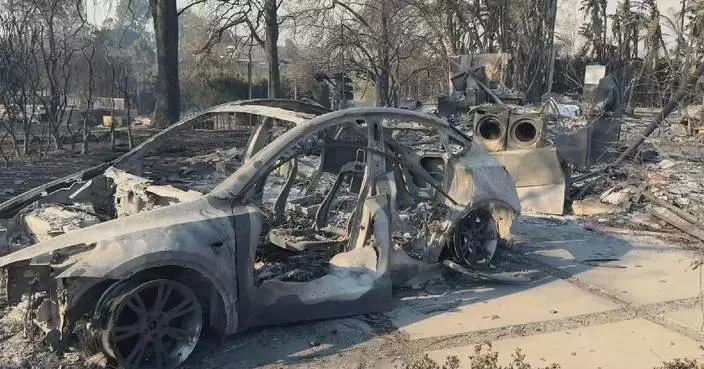
Los Angeles residents sad, desperate over devastating wildfires
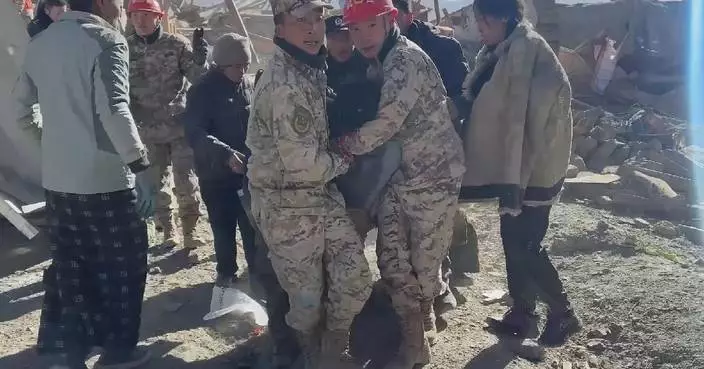
Over 400 people rescued from rubble after 6.8-magnitude quake in Xizang

Video Player is loading.
Mainland official stresses promoting cross-Strait ties in meeting Taitung County head

Video Player is loading.
Chinese AI products take spotlight at CES 2025 in Las Vegas

Children paying highest price of war in Gaza: UNICEF spokesman

Earthquake relief efforts carried out in timely, orderly manner in Xizang: spokesman

Video Player is loading.
Supporters, protesters gather at impeached South Korean president's residence

Video Player is loading.
All-out rescue, relief efforts underway in quake-hit areas of Xizang

Video Player is loading.
Western countries turn blind eye to Israel's actions in Gaza: Iranian FM

Video Player is loading.
Resettlement, treatment efforts proceed smoothly in quake-hit Xizang

Video Player is loading.
53 dead, 62 injured in Xizang 6.8-magnitude quake

Video Player is loading.
New York imposes first ever congestion pricing plan in U.S.

Video Player is loading.
Palestinian death toll from Israeli attacks in Gaza rises to 45,805

Video Player is loading.
Palestinian death toll from Israeli attacks in Gaza rises to 45,658

Video Player is loading.
Diversified scenarios, business models fuel consumption boom across China in new year

Video Player is loading.
407 people rescued, temporary buildings set up in quake-hit Xizang

Video Player is loading.
Los Angeles residents sad, desperate over devastating wildfires

Video Player is loading.
Over 400 people rescued from rubble after 6.8-magnitude quake in Xizang
Feature·Bloggers

【Lai See(利是)】Hong Kong woman finds job in UK – at one-tenth of her pay

【What Say You?】Former president of Civic Party enjoys high life of gourmet meals while his former political allies swallow prison life

【Mark Pinkstone】The United Kingdom: a land of broken promises
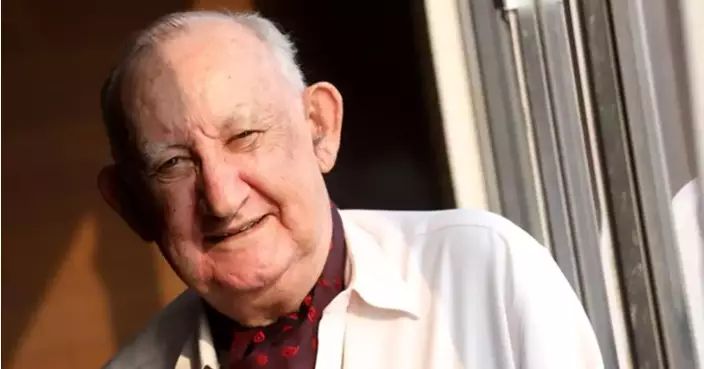
【Mark Pinkstone】The US didn’t get any presents from Santa this Christmas; it was deemed “naughty”

【Bastille Commentary】Professor Chan Should Flee the UK

European Investment Bank to boost funds for Bangladesh as it weathers political turmoil
- Lee scores goal in 800th game and Sorokin has shutout as Islanders beat Golden Knights 4-0
- Stock market today: Asian shares slide further as rate cut, tariff worries hit market sentiment
- LA area's 2 biggest blazes burn at least 10,000 structures, while new fire leads to more evacuations
- Winter storm plods into the Deep South, prompting states of emergency and school closures
- Ohio state Sen. Ben Espy, who died at 81, to be remembered at service for breaking barriers
- Moldovans grapple with outages as energy crisis grips pro-Russia region
- Trump to be sentenced in hush money case, days before return to White House
- Estonia steps up patrols in the icy Baltic Sea in a show of force after suspected cable sabotage
- Bears interview Pete Carroll for head coaching job
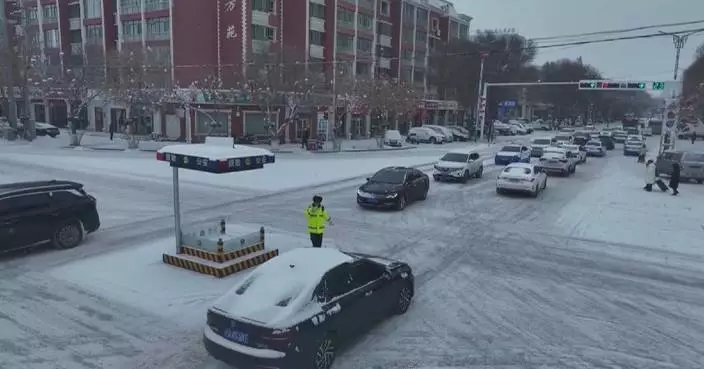
Efforts underway across China to minimize disruptions caused by snow
- Relief efforts in full swing in quake-hit Xizang
- Newly launched inter-island transport in Hainan benefits locals
- Sudan starts distribution of China-donated rice
- Chinese FM meets Nigerian president, foreign minister
- Europe faces harsh winter as Ukraine halts Russian gas transit to Europe
- UN Security Council welcomes election of Lebanon's new president
- Ancient city Xi'an holds cultural event for Chinese New Year
- China sees progress in re-lending programs for tech innovation, equipment renewal
- Shanghai receives 1st visiting int'l cruise ship of 2025

TÜV Rheinland Unveils New Laptop Eye Comfort Standards: Multi-Brand Collaboration at CES
- Ultima Markets Wins "Best APAC CFD Broker 2024" Award, Setting New Standards in the Trading Industry
- Jointly Charging the Road Ahead | Huawei Releases Top 10 Trends of Charging Network Industry 2025
- EngineAI Debuts at CES 2025 with Revolutionary Robotics Lineup
- Hong Kong Economic Policy Green Paper 2025 Policy Recommendations to Turbocharge Hong Kong's Economy
- US 'notorious markets' report warns of risks from online pharmacies
- From AI assistants to holographic displays, automakers showcase in-cabin experiences at CES
- Japan's Ishiba visiting Malaysia and Indonesia to strengthen defense and economic ties
- AXA, AXA Tianping, and PICC Strengthen Cooperation, MOU signed on "Green Action Global" project
- Anta Kids : Weaving Intangible Cultural Heritage into the Fabric of Childhood
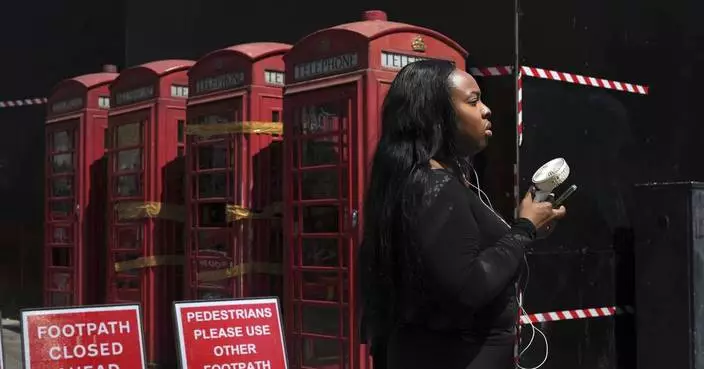
Earth records hottest year ever in 2024 and the jump was so big it breached a key threshold
- Yagi & Co., Ltd.: New Material “LAVATECH” Containing Lava from Mt. Fuji to Be Exhibited at Heimtextil 2025
- Baltimore WR Zay Flowers won't play against Pittsburgh this week after injuring his knee
- New Mexico is a go-to state for women seeking abortions. A new court ruling helps it stay that way
- The ‘Worst in Show’ CES products put your data at risk and cause waste, privacy advocates say
- Judge scraps Biden's Title IX rules, reversing expansion of protections for LGBTQ+ students
- Researchers confirm 'Music City Miracle' star Frank Wycheck had CTE
- Musk uses X livestream to amplify German far-right leader's views ahead of an election
- Middle East latest: Gaza war deaths pass 46,000 and Lebanon ends presidential deadlock
- NOAA says La Nina ocean cooling has finally arrived, but it's weak and may cause fewer problems
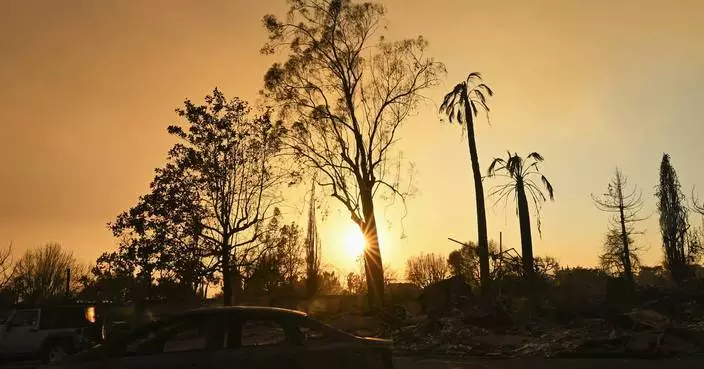
Actor Steve Guttenberg returns to his once-lush LA neighborhood now charred by devastating wildfire
- Hield scores 19, helps Warriors bounce back from lopsided losses with 107-104 win over Pistons
- Jimmy Carter lauded for humility and service in Washington before being laid to rest in Georgia
- Alec Baldwin sues for malicious prosecution after judge dismissed case of fatal 'Rust' set shooting
- How the wildfires in the Los Angeles area could affect California's home insurance market
- Stars lose homes in Los Angeles area fires and Jamie Lee Curtis pledges $1M to relief effort
- Cox Castle Mourns the Passing of Partner Michael Zischke
- Otto Schenk, director known for traditional opera productions, dies at 94
- The Los Angeles landmarks from film and TV damaged by wildfires
- South Carolina statue honoring Black hero Robert Smalls will stare down a segregationist

Rams WR Demarcus Robinson charged with DUI after arrest in November
- Veteran Gael Monfils reaches his 35th ATP final in Auckland aged 38
- Herro's 23 points and Jaquez's clutch plays lift Heat over Jazz, 97-92
- An albatross couple shares egg duty in this captivating low-drama reality show
- Guerrero agrees to $28.5M and Valdez to $18M; Tucker tops arbitration 17 requests at $17.5M
- Bradley Beal leads with 25 points off the bench, Suns pull away late to beat the Hawks 123-115
- Ohio State and Texas enter CFP semifinal at Cotton Bowl seeking a chance to end title droughts
- Independent streak helped build Notre Dame into football's historic and now modern behemoth
- PHOTO COLLECTION: California Wildfires
- South Korean police question presidential security chief as rift over detaining president deepens

Greater Bay Area Exhibition Launches to Showcase Opportunities for Hong Kong Youth
- Payment Deadline for Government Rates Set for January 28, 2025
- Government Appoints New Members to PASS Vetting Committee for 2025-2026 Term
- Invest Hong Kong Expands Reach with New Office in İzmir, Türkiye
- Hong Kong Flower Show 2025: Student Drawing Competition Opens for Entries Until February 10
- CHP Urges Elderly to Take Precautions Against Cold Weather Health Risks
- Pilot Scheme for Plastic Recycling Concludes; Services Transition to GREEN@COMMUNITY Network for Enhanced Efficiency.
- HKMA Announces Tender for HK$2 Billion 10-Year Government Bonds on January 15, 2025
- Home Affairs Opens 18 Temporary Cold Shelters Amid Severe Weather Conditions
- Health Department Warns Against Use of Eczevandia Products Due to Undeclared Controlled Ingredients
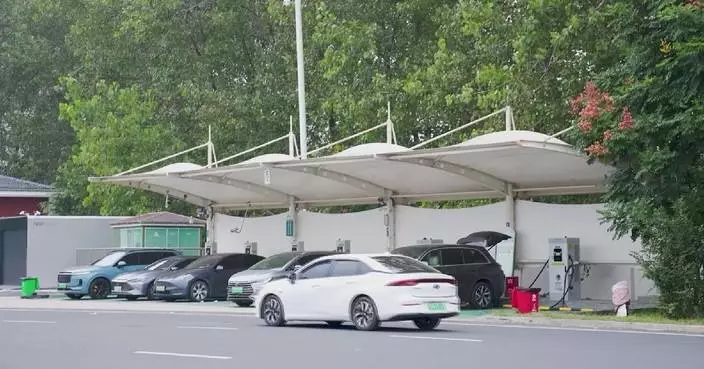
Almost all expressway service areas equipped with NEV charging facilities in China
- California wildfires claim at least 5 lives, force thousands to evacuate
- China unveils plan to boost whole grain production, enhance food security
- Construction of China's 2nd homegrown large cruise ship at full steam
- Joining BRICS to help boost Indonesia's economic growth: expert
- Turkish ambassador highlights strategic ties with China, support for Global South
- Integrated meteorological observation system established in China
- Chadian president meets Chinese FM to advance bilateral cooperation
- Zhejiang launches Spring Festival shopping season to boost consumption
- Personnel, supplies from across country rush towards quake-hit areas of Xizang
Category · News

European Investment Bank to boost funds for Bangladesh as it weathers political turmoil

Rams WR Demarcus Robinson charged with DUI after arrest in November

Video Player is loading.
Efforts underway across China to minimize disruptions caused by snow

TÜV Rheinland Unveils New Laptop Eye Comfort Standards: Multi-Brand Collaboration at CES

Ultima Markets Wins "Best APAC CFD Broker 2024" Award, Setting New Standards in the Trading Industry

Lee scores goal in 800th game and Sorokin has shutout as Islanders beat Golden Knights 4-0

Greater Bay Area Exhibition Launches to Showcase Opportunities for Hong Kong Youth

Veteran Gael Monfils reaches his 35th ATP final in Auckland aged 38
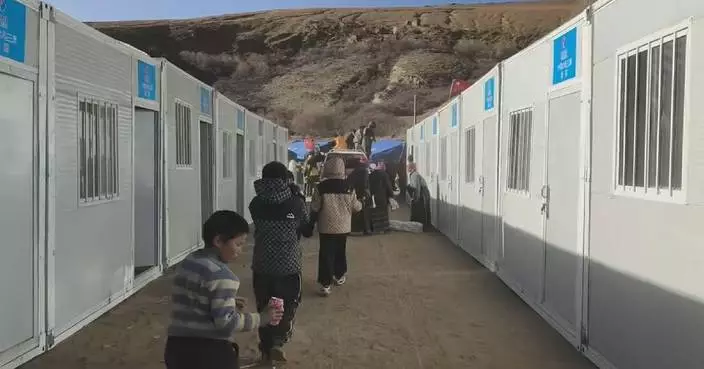
Video Player is loading.
Relief efforts in full swing in quake-hit Xizang

Stock market today: Asian shares slide further as rate cut, tariff worries hit market sentiment

Jointly Charging the Road Ahead | Huawei Releases Top 10 Trends of Charging Network Industry 2025
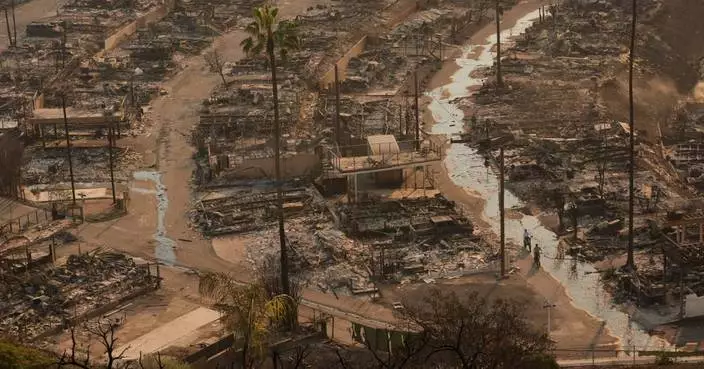
LA area's 2 biggest blazes burn at least 10,000 structures, while new fire leads to more evacuations

Winter storm plods into the Deep South, prompting states of emergency and school closures
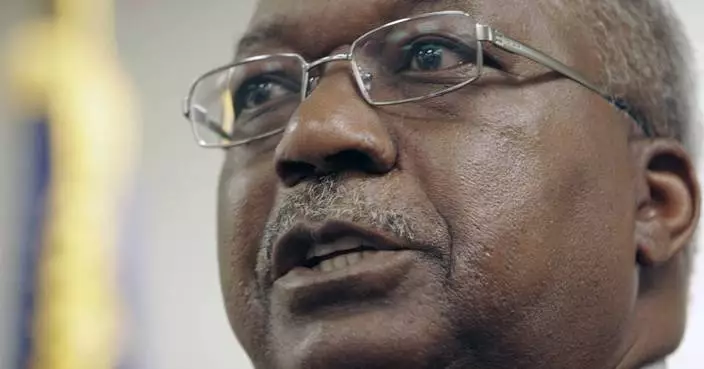
Ohio state Sen. Ben Espy, who died at 81, to be remembered at service for breaking barriers

EngineAI Debuts at CES 2025 with Revolutionary Robotics Lineup
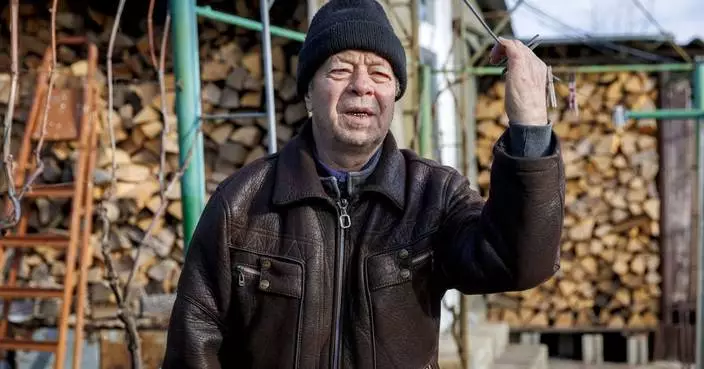
Moldovans grapple with outages as energy crisis grips pro-Russia region

Trump to be sentenced in hush money case, days before return to White House
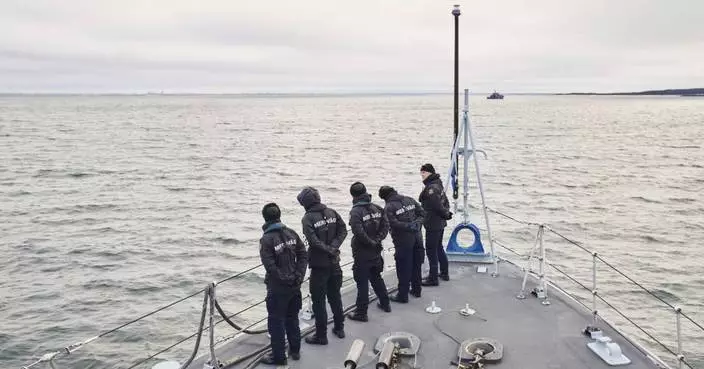
Estonia steps up patrols in the icy Baltic Sea in a show of force after suspected cable sabotage

Hong Kong Economic Policy Green Paper 2025 Policy Recommendations to Turbocharge Hong Kong's Economy

Bears interview Pete Carroll for head coaching job
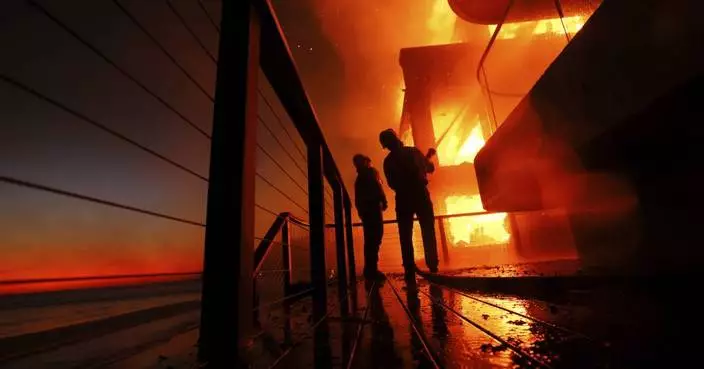
New LA-area fire prompts more evacuations while over 10,000 structures lost to the 2 biggest blazes
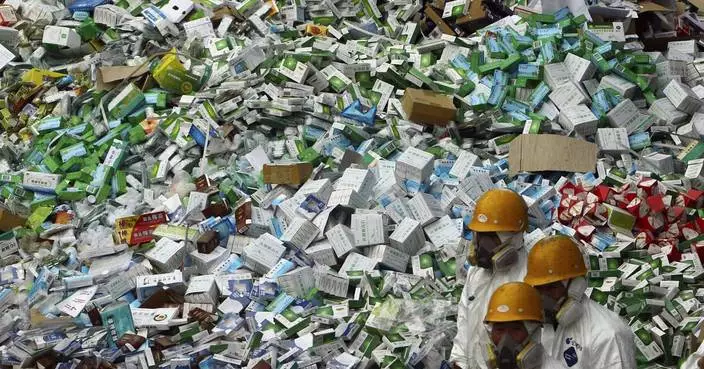
US 'notorious markets' report warns of risks from online pharmacies
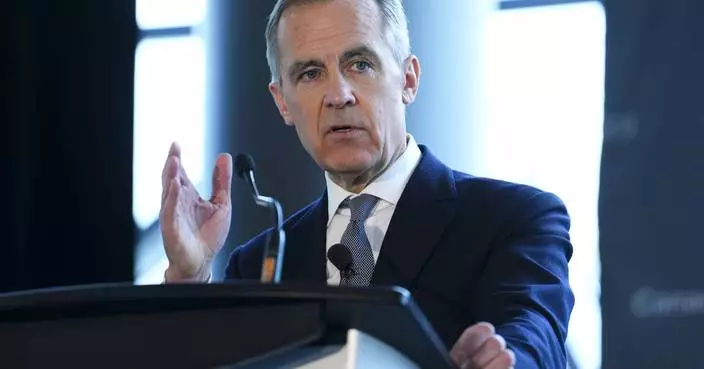
Canada's Liberal Party to decide who will be the country's next prime minister on March 9

Herro's 23 points and Jaquez's clutch plays lift Heat over Jazz, 97-92

An albatross couple shares egg duty in this captivating low-drama reality show

Guerrero agrees to $28.5M and Valdez to $18M; Tucker tops arbitration 17 requests at $17.5M

Bradley Beal leads with 25 points off the bench, Suns pull away late to beat the Hawks 123-115

Ohio State and Texas enter CFP semifinal at Cotton Bowl seeking a chance to end title droughts

Actor Steve Guttenberg returns to his once-lush LA neighborhood now charred by devastating wildfire

From AI assistants to holographic displays, automakers showcase in-cabin experiences at CES

Independent streak helped build Notre Dame into football's historic and now modern behemoth
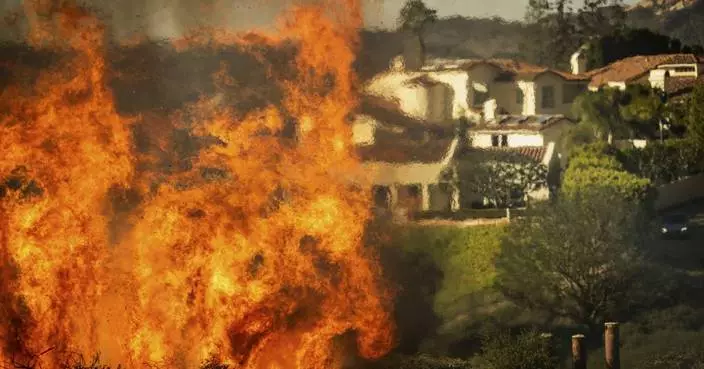
PHOTO COLLECTION: California Wildfires

Japan's Ishiba visiting Malaysia and Indonesia to strengthen defense and economic ties

South Korean police question presidential security chief as rift over detaining president deepens

Paul Peterson makes PGA Tour debut at age 36 and leaves an impression

AXA, AXA Tianping, and PICC Strengthen Cooperation, MOU signed on "Green Action Global" project

Anta Kids : Weaving Intangible Cultural Heritage into the Fabric of Childhood

Sengun has 32 points and 14 rebounds as the Rockets beat the Grizzlies 119-115 in Morant's return

Hardy scores 25 and Mavericks use late 16-0 run to rally past Trail Blazers 117-111

Thomas has 2 goals as Blues beat Ducks 6-2

Hield scores 19, helps Warriors bounce back from lopsided losses with 107-104 win over Pistons

Nathan MacKinnon has goal and an assist in Avalanche's 6-1 victory over Wild

Las Vegas Raiders fire general manager Tom Telesco after just one year
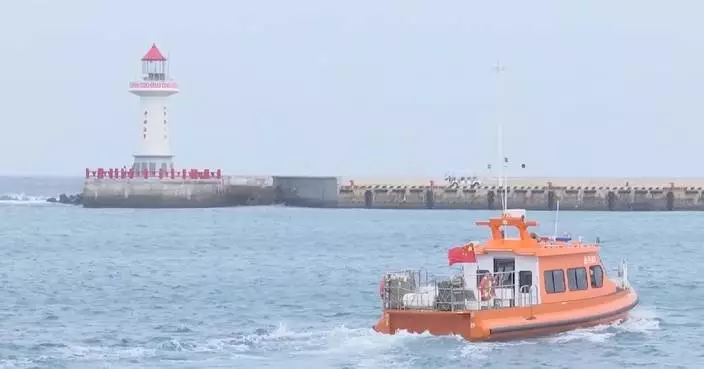
Video Player is loading.
Newly launched inter-island transport in Hainan benefits locals
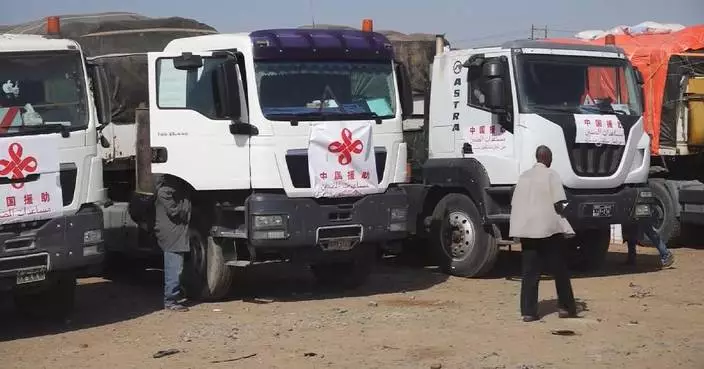
Video Player is loading.
Sudan starts distribution of China-donated rice

Luukkonen makes 35 saves to help the Sabres spoil the Senators’ homecoming with a 4-0 victory

Jordan Staal scores hat trick to lead Hurricanes to 6-3 win over Maple Leafs
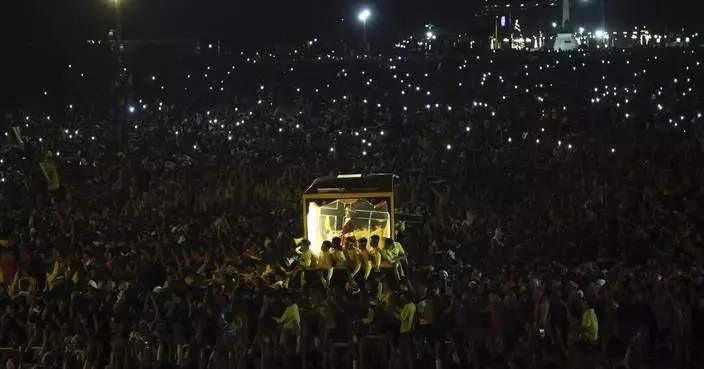
Filipino Catholics pray for good health and peace in huge procession venerating Jesus statue

Brayden Point reaches 600 career points in Lightning's 4-1 victory over the Bruins

Smart, Sustainable, and Powerful: Anker Innovations Leads Charging Tech at CES 2025
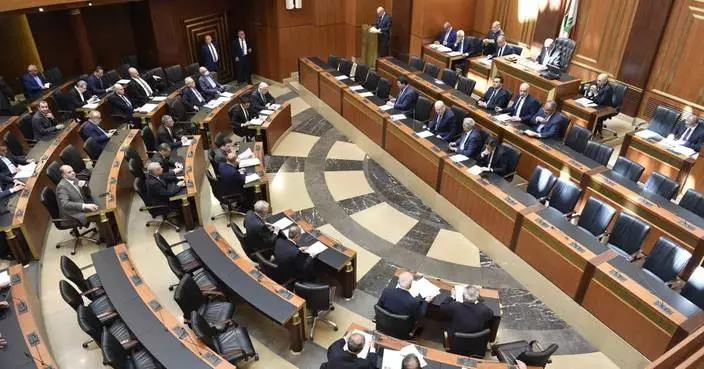
Lebanon's parliament elects army commander Joseph Aoun as president, ending a 2-year deadlock

Carrick's overtime goal lifts Rangers past Devils 3-2

Video Player is loading.
Chinese FM meets Nigerian president, foreign minister
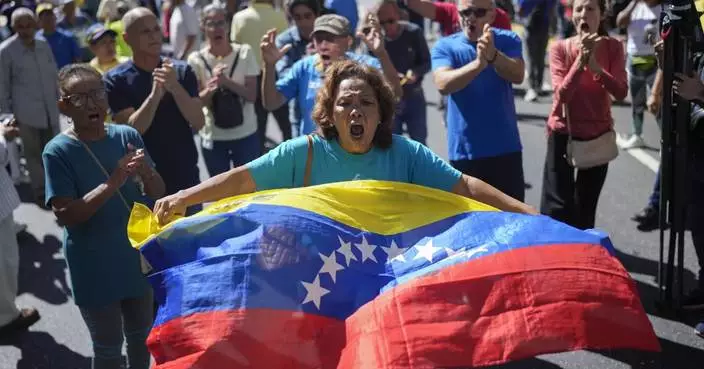
Venezuela's opposition leader defies Maduro to lead protests that end in confusing arrest claims
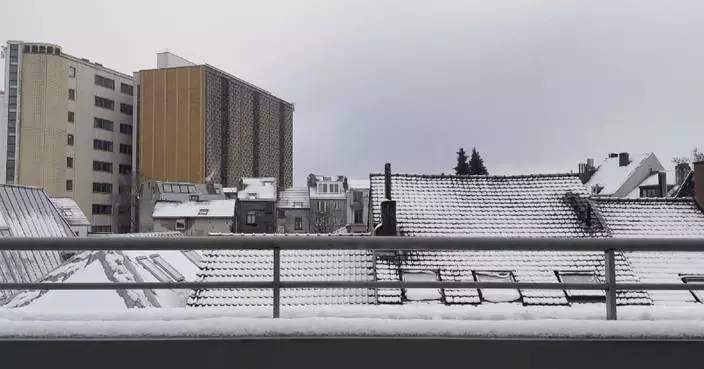
Video Player is loading.
Europe faces harsh winter as Ukraine halts Russian gas transit to Europe

Earth records hottest year ever in 2024 and the jump was so big it breached a key threshold
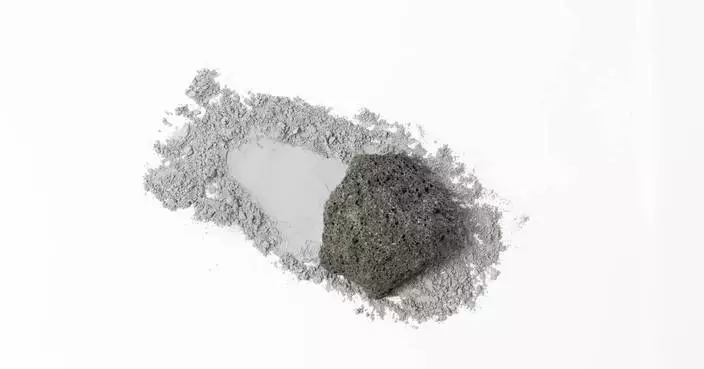
Yagi & Co., Ltd.: New Material “LAVATECH” Containing Lava from Mt. Fuji to Be Exhibited at Heimtextil 2025

Payment Deadline for Government Rates Set for January 28, 2025

Government Appoints New Members to PASS Vetting Committee for 2025-2026 Term

US orange juice and steel will be on Canada's list for retaliation if Trump imposes tariffs
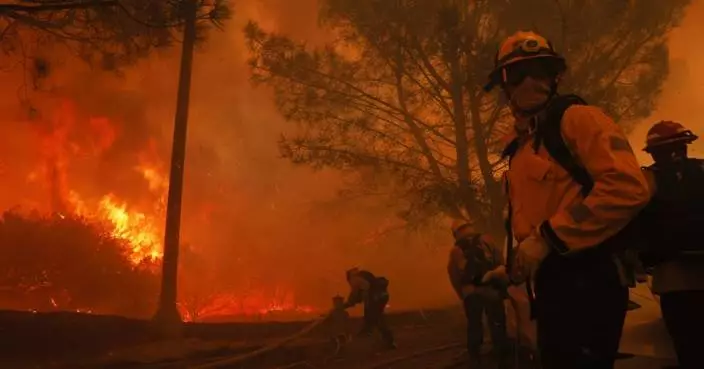
Flames, smoke and smoldering homes as firefighters battle wildfires in Southern California
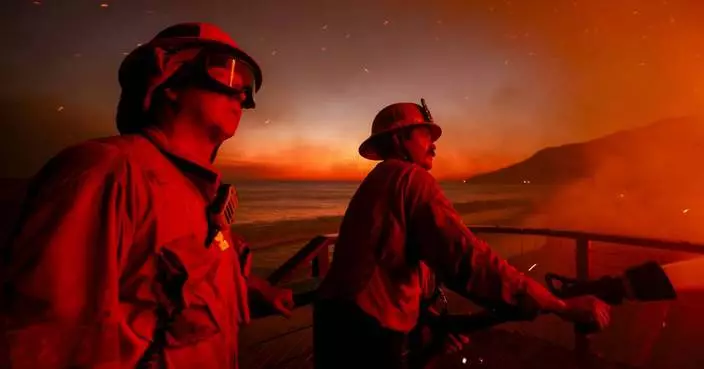
Wildfires latest: At least 10,000 structures have burned in a series of fires around Los Angeles

Italy's Meloni hopes to attend Trump inauguration as she downplays his Greenland and Panama comments

Darius Garland scores season-high 40 points, Cavaliers beat Raptors 132-126 for 12th straight win

DeSmith stops 27 shots to lead Stars to 6th straight win, 4-1 over Flyers
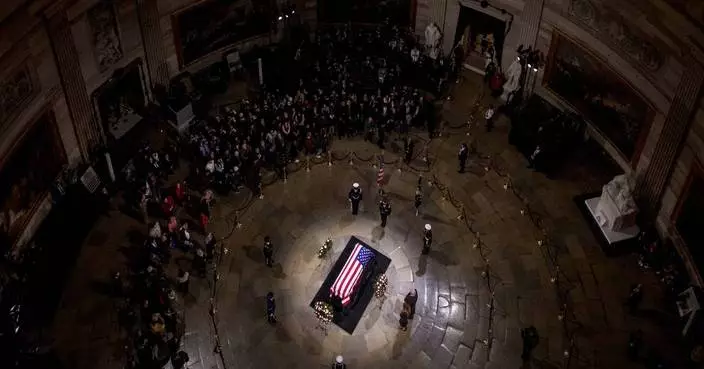
Jimmy Carter lauded for humility and service in Washington before being laid to rest in Georgia

GlocalMe Unveils New Brand Identity and Cutting-Edge Innovations at CES 2025

History made: Habib is 1st Lebanese player in Open era to play in a Grand Slam men's singles draw
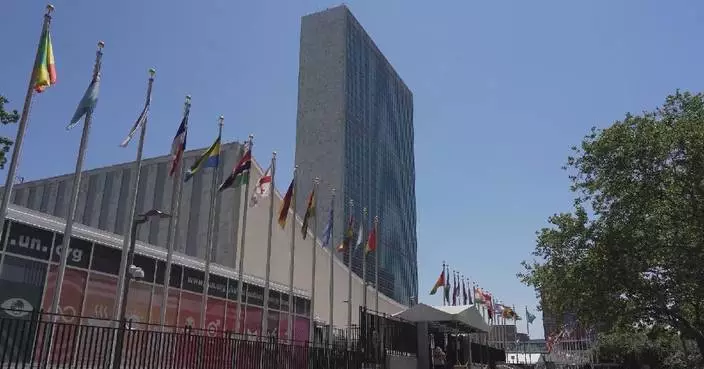
Video Player is loading.
UN Security Council welcomes election of Lebanon's new president

Harrison Smith's weekly coffee with the coach is part of a special season for Vikings veteran safety

Alec Baldwin sues for malicious prosecution after judge dismissed case of fatal 'Rust' set shooting

Supreme Court rejects Trump’s bid to delay sentencing in his New York hush money case

Wildfires force Rams, Vikings to head to Arizona for their intriguing wild-card playoff matchup
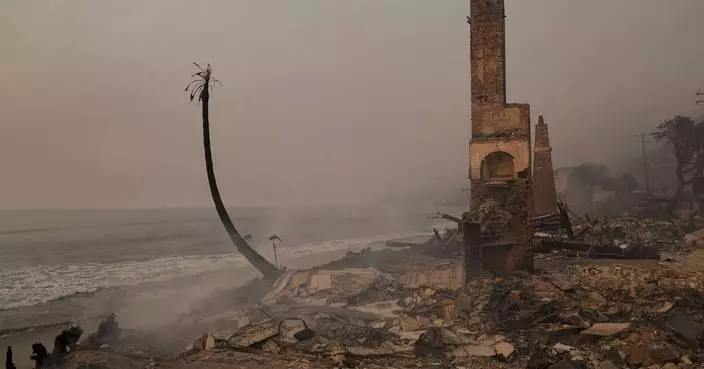
Los Angeles Rams' playoff game moved to Arizona as wildfires disrupt sports in Southern California
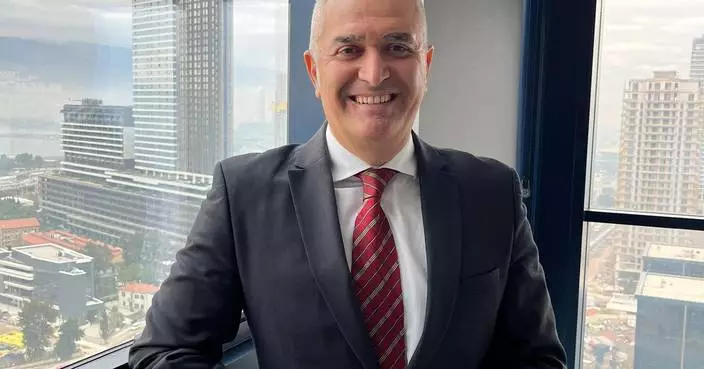
Invest Hong Kong Expands Reach with New Office in İzmir, Türkiye

Hong Kong Flower Show 2025: Student Drawing Competition Opens for Entries Until February 10
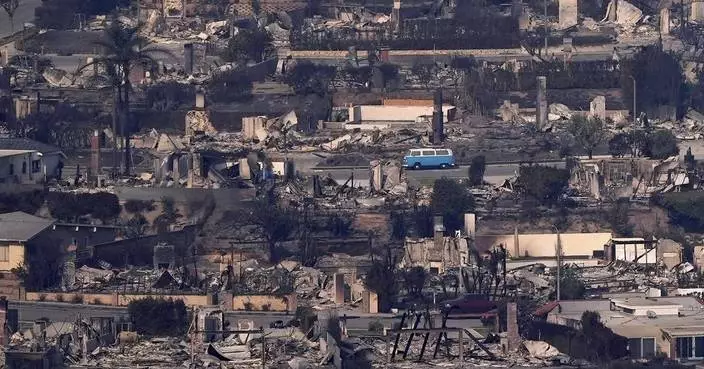
How the wildfires in the Los Angeles area could affect California's home insurance market

Steve Kerr's 90-year-old mother among the many to lose a home in fierce wildfires in LA area

As wildfires rage in Los Angeles, Trump doesn't offer much sympathy. He's casting blame.
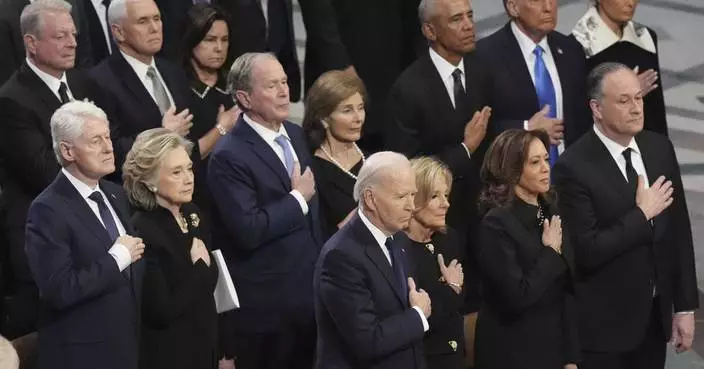
Jimmy Carter's funeral brings together 5 current and former US presidents to honor one of their own
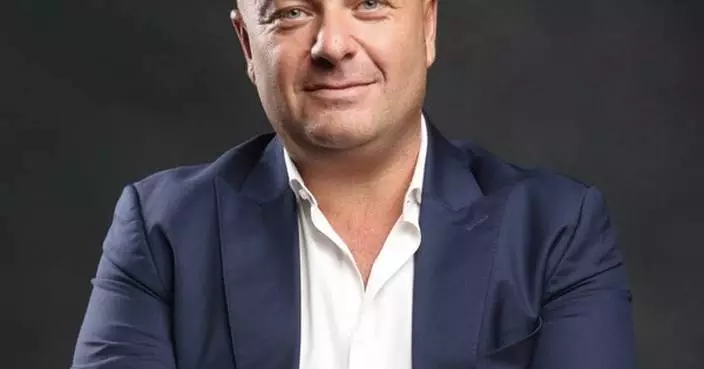
DomaCom Appoints Giuseppe Porcelli as Chairman and Secures $2 Million Private Placement

A contentious push to wrap up the 9/11 prosecutions takes an emotional toll on victims' families
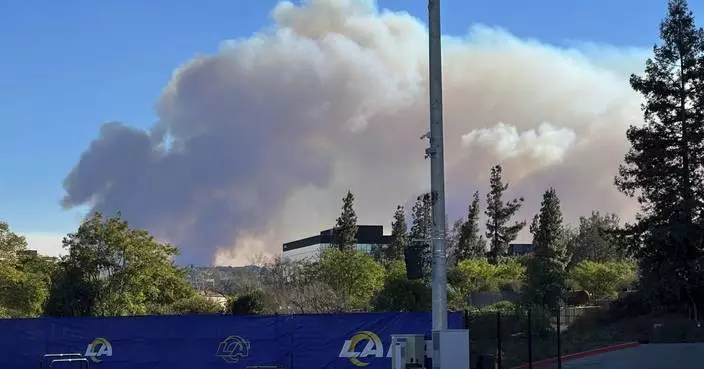
NFL moves Vikings-Rams playoff game to Arizona after days of devastating wildfires in Los Angeles
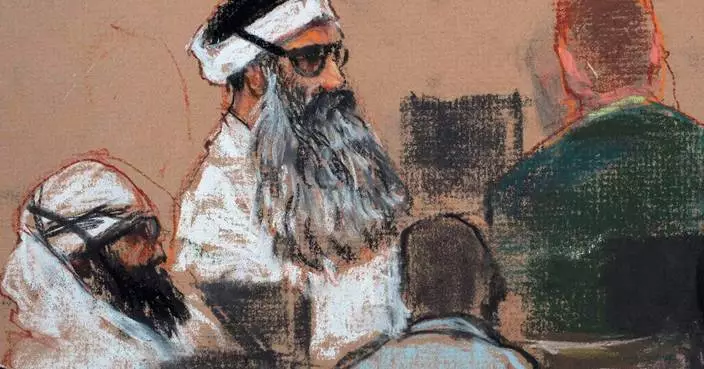
The Biden administration succeeds in temporarily blocking a plea deal for accused 9/11 mastermind


